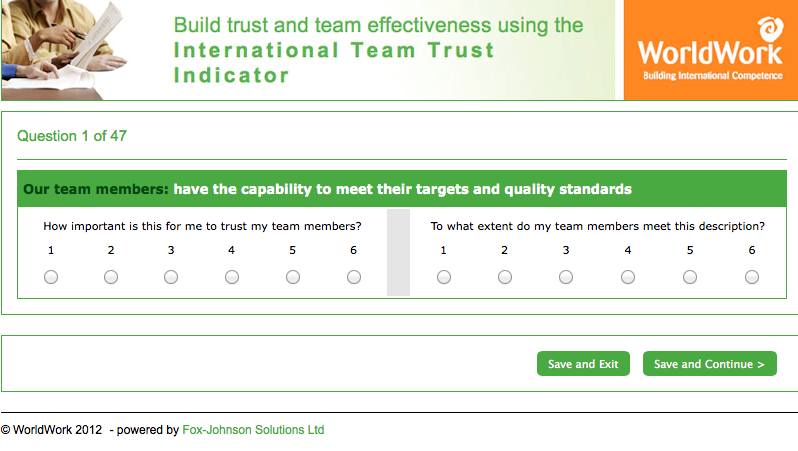Why is trust so important?
According to Patrick Lencioni[1], trust is the cornerstone of every team’s smooth functioning.
Without trust a team cannot openly discuss the basic issues or feel responsible or challenge individual results, thus failing to achieve a satisfying conclusion.
A study published by The Economist[2] describes the types of behavior which, according to employees, characterize trust, but which are not sufficiently developed in most companies, namely: honesty, willingness to exchange information, ethical behavior, shared objectives, motivation, respect for others.
Team coachings have shown that the question of trust is essential to the team’s proper functioning. Yet, when we ask: “what is trust?” the answer is an abstract concept which each team member defines according to his personal scale of values.
The International Team Trust Indicator (ITTI) is an instrument that measures trust within teams by giving a common and concrete definition based on precise indicators: each member of the team that is being examined describes what he hopes to obtain and what he actually obtains.

There are nine basic indicators:
Competent: team members know their job
Aligned: clear understanding of each other’s role
Supportive of each other’s priorities and objectives
Honest: transparency among team members
Committed: members are dedicated to team’s activities
Safe: being able to talk openly about one’s weaknesses
Inclusive: being certain that one is listened to and is involved in decision taking
Open with information
Level of empowerment in one’s job
How does it work?
Each team member fills a questionnaire online. He then receives a report showing the trust level within the team, specifying the main areas that need to be developed on the ground of the gap between individual wishes and results obtained on the nine indicators.
These results will be the basis for a team coaching session directed by a coach, aiming at the development of a concrete action plan.
This action plan is then implemented either by the team itself or through specific actions resulting from team coaching.
It is particularly recommended for teams encountering the following problems:
- Communication breakdown
- Low results and/or productivity
- Changes of management, strategy, mergers
- Remoteness of teams
- Lack of innovation
- Complacency
- Conflicts or excessive competition between groups
ITTI’s benefits:
- Brings to the surface the team’s dysfunctions and
- Highlights misunderstandings within the team
- Solves the “scapegoat” problem
- Aims at concrete solutions and results
- Gives the tools for finding solutions
Discover ITTI with Share: on request we will send you a sample of the report and will examine with you how to implement it in your particular situation.
[1] Patrick Lencioni, The five dysfunctions of a team, 2002
[2] Economist Intelligence Unit, The role of trust in business collaboration, 2008



